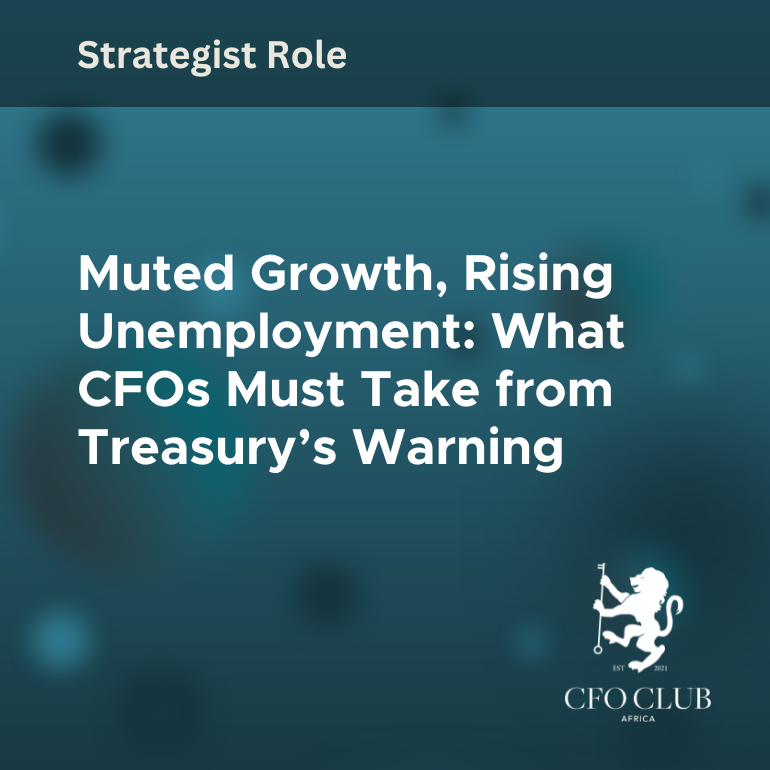Finance Is Bleeding Talent, Because You Forgot to Say ‘Well Done’
Finance Is Bleeding Talent, Because You Forgot to Say ‘Well Done’
Finance is not known for fireworks. It is known for results, deadlines, reconciliations, and that long, uphill push towards year-end. But ask any CFO who has led a turnaround, navigated a crisis, or rebuilt trust after a rough season, and they will tell you that the biggest momentum often comes from the smallest victories.
Small wins may not make headlines or trigger analyst upgrades, but they do something just as valuable. They give people hope. They prove that the plan is working. They make progress, especially in environments where pressure is high, morale is fragile, and everyone is desperate for a sign that the numbers are finally moving in the right direction.
Progress Is a Powerful Motivator
When people see progress, they start to believe again. It is as simple as that.
In many finance environments, particularly during recovery or rapid change, the ultimate goals feel far away. Whether it is turning a profit, restoring market confidence, or rebalancing cash flow, the big milestones can take months or even years to fully realise. Waiting until then to acknowledge progress is a mistake.
Psychologically, small wins act as proof points. They reduce uncertainty. They remind teams that their hard work is paying off, even if the end goal is still over the horizon. Every improved margin, every clean audit, every accurate forecast is a chance to reset the narrative—from “we’re in trouble” to “we’re getting there.”
What Counts as a Small Win?
A small win in finance is anything that signals improvement, consistency, or control. It does not have to be dramatic, and it certainly does not have to be perfect.
Examples include:
- A month-end close that happens on time without last-minute chaos
- A debtor book that shows improved collections
- A business unit meeting its budget for the first time in three quarters
- A successful audit with no material findings
- A new dashboard that helps leaders spot issues earlier
- A junior team member producing a clean set of management accounts unaided
These moments may seem minor, but in the broader context of business recovery or operational strain, they matter. They create confidence. They tell the team, “This is working.”
Why Finance Teams Tend to Skip the Celebration
In many finance cultures, celebrating progress feels… uncomfortable. The mindset is often, “That’s what we’re paid to do,” or, “Let’s not celebrate until the year-end results are locked.” But this attitude overlooks one crucial point: people perform better when they feel acknowledged.
Finance professionals are typically under pressure to be accurate, fast, and available. When their wins go unnoticed, burnout creeps in. Motivation drops. And eventually, talent walks. Recognition does not require confetti or bonuses. It simply means saying, “Well done. That made a difference.”
Ignoring progress because “we’re not there yet” is like withholding water from a marathon runner until they reach the finish line. It does not make the team tougher. It makes them tired.
Visibility Beats Assumption
One of the most effective ways to reinforce progress is to make it visible. Do not assume that others can see what is going well. Put the improvement on the boardroom table. Share the numbers. Track the trends. Show the delta.
Whether through dashboards, weekly updates, or verbal shout-outs in team meetings, visible progress changes the mood in a room. It tells the story of recovery in real time. It also helps leadership align faster, make better decisions, and reduce reactionary thinking.
If you are in a recovery environment, this visibility is especially critical. It keeps stakeholders calm and gives the board something tangible to work with beyond speculation or assumption.
How CFOs and Finance Leaders Can Lead This
If you are a CFO or senior finance professional, you are in the perfect position to set the tone. That tone should say, “We take performance seriously—and we take progress seriously, too.”
You can start by:
- Creating regular feedback loops where achievements are acknowledged
- Making space in meetings for short, honest reflections on what’s working
- Highlighting team contributions when presenting results to executives
- Giving junior team members credit when they deliver accurate work under pressure
- Framing financial improvements as signs of strategic success, not just operational compliance
This is not about softening standards. It is about reinforcing the behaviours, choices, and thinking that are helping the business improve. Celebration, in this sense, is not about emotion. It is about alignment.
From Surviving to Building Momentum
Every successful turnaround begins with a shift in belief. That shift does not come from one massive win. It comes from a series of smaller ones, steady, consistent, and real.
In finance, where so much of the work happens behind the scenes, celebrating small wins is a way to bring that work into the light. It helps the organisation see its own progress and energises the people responsible for driving it.
So if your team delivered a clean set of books, cleared a backlog, or improved margin by one percent, say something. Recognise it. Mark the moment. Because those wins add up. And they just might be the reason you hit the bigger target in the end.





